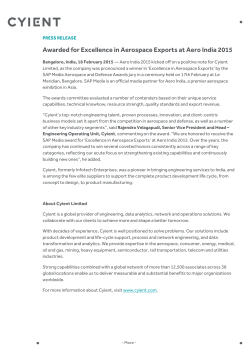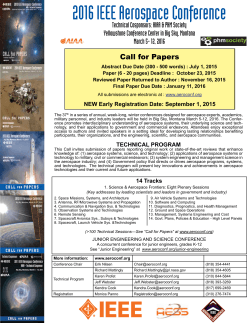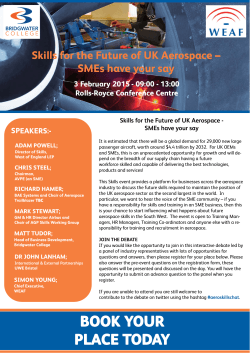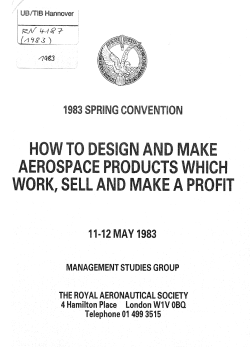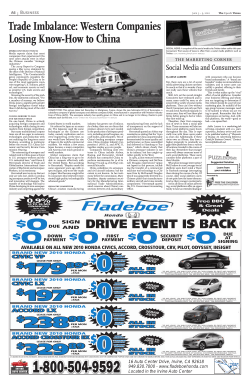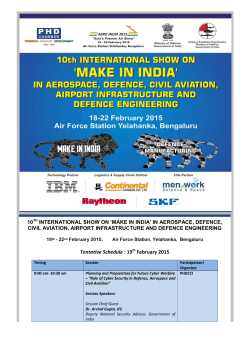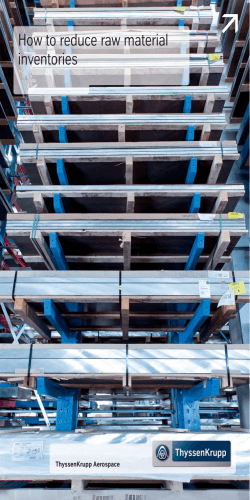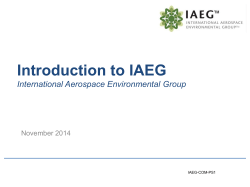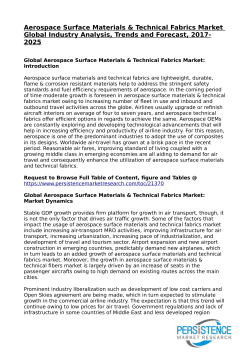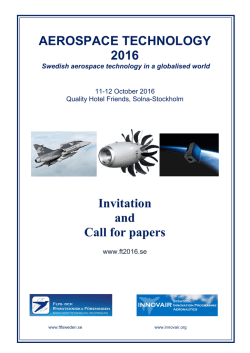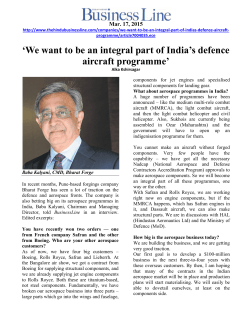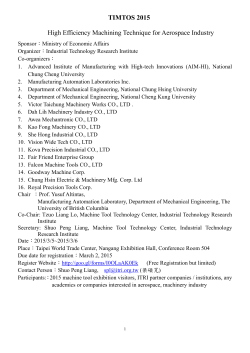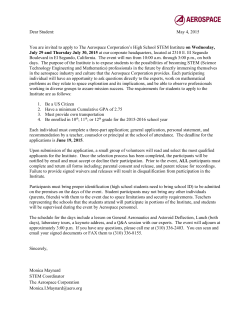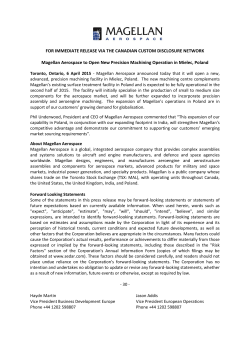
Abstract ASET2015 Format
Abstract ASET2015 Format First Author#, Second Author*, Third Author# # First-Third Department, First-Third University Address 1 first.author@first-third.edu 3 third.author@first-third.edu * Second Company Address Including Country Name 2 second.author@second.com This document gives formatting instructions for authors preparing abstracts for publication in the souvenirs of ASET2015 conference. The authors must follow the instructions given in the document for the papers to be published. You can use this document as an instruction set. The abstract should be an extended abstract with 500-1000 words. Aeronautical Society of India, Thiruvananthapuram Branch spearheads aeronautics activities in Trivandrum with various programs including an Annual National Seminar dealing with Emerging Trends in Aerospace Technologies – ‘ASET’. It is decided to conduct ASET 2015 focusing on ‘Recent Trends in Aerospace Systems Integration and Testing’ during 1-2 May 2015 at ISRO Propulsion Complex (IPRC), Mahendragiri. This two day seminar will have about 10 invited talks, one key note address and contributed papers (about 50) from researchers and students. It is expected that about 250 delegates, 50 students and many exhibitors to attend the Seminar. Inaugural session is expected to be attended by about 400 members. Seminar will bring out a souvenir of abstracts, Proceedings of full paper in CD and a paper on panel discussions giving future roadmap of research in the aerospace propulsion systems, integration and testing. Aerospace Systems Integration and Testing play major role in realizing a reliable aerospace vehicle. Many innovations and recent technologies have been in use for perfect integration and testing. Electrical and Mechanical integration of aircrafts, missiles and launch vehicles are itself very vast and advances in the area brings facelift in the integration and testing of aerospace systems. The tools and design methodologies are being redefined. The applications of these frontier developments are to find place in the new systems being developed such as the Reusable Launch Vehicles, advanced missiles, lightweight aircrafts and modern multi-purpose spacecrafts. Development efforts are to be invigorated in these areas to bring about successful product developments leading to their induction in our national systems. This national Conference is being organized to bring together the people working in this area to deliberate on the experiences acquired, and future directions required to follow up. Towards this goal a two day National Conference on “RECENT TRENDS IN AEROSPACE SYSTEMS INTEGRATION AND TESTING - ASET 2015” is organized by Aeronautical Society of India, Thiruvananthapuram Branch during May 1-2, 2015 at ISRO Propulsion Complex, Mahendragiri, TamilNadu.. This document is a template. An electronic copy can be downloaded from the conference website. Information about final paper submission is available from the conference website. Abstract to be submitted before the deadline given in the conference website Your paper must use a page size corresponding to A4 which is 210mm (8.27") wide and 297mm (11.69") long. The margins chosen should be normal available in Microsoft word. Your abstract must be in single column format. The entire document should be in Times New Roman font with font size 11 pt and spacing should be single. \ Title must be in 18 pt Regular font. Author name must be in 11 pt Regular font. Author affiliation must be in 10 pt. Email address must be in 10 pt. All title and author details must be cantered. Email address is compulsory for the corresponding author. A. Section Headings There can be sections in abstracts. Maximum number of sections can be three. Sections to contain clearly the objective of the study presented and the mention about the present literature standard/application level in the area discussed. B. Technical Content Abstract should clearly tell about the methods/models used for the study. The contribution of the paper in the area of consideration should be brought out. If required the paper can contain figures and tables with proper explanations and titles. C. Inferences and Conclusions Abstract should give the results obtained from the study and proper interpretation of the results. Inferences from the study results and its importance to the field can be highlighted. It is advised to give few important references based on which study was conducted and new results are obtained.
© Copyright 2025
